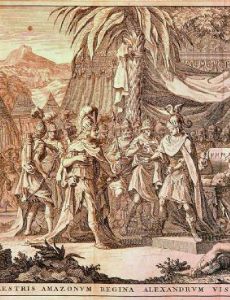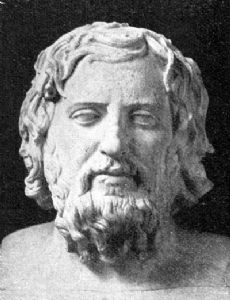

* "On Remarkable Things in Various Countries" (it is doubtful whether these were separate works, or just extracts from the Histories) His style was high-flown and artificial, as was natural considering his early training, and he frequently sacrificed truth to rhetoric effect but, according to Dionysius of Halicarnassus, he and Theopompus were the only historical writers whose language was accurate and finished. He was commended for drawing (though not always) a sharp line of demarcation between the mythical and historical he even recognized that a profusion of detail, though lending corroborative force to accounts of recent events, is ground for suspicion, in reports of far-distant history. According to ancient writers, he was respected as an able and thorough, though somewhat dull historiographer. His surviving writings all show a certain lack of passion, in spite of his keen interest in matters of style, and of political partisanship, except for his enthusiasm for Cyme. He also wrote "Peri heurematon", a book about inventions, and "Peri lexeos", "On Style". īesides the universal history, Ephorus wrote an "Epichorios logos" (a patriotic essay), in which he praised the traditions of Cyme. Polybius, while crediting him with a knowledge of the conditions of naval warfare, ridicules his description of the battles of Leuctra and Mantinea as showing ignorance of the nature of land operations.

In his Geographica, Strabo quotes Ephorus at length on the pederastic practices of the Cretans, the only reliable ethnographic account of the Ancient Cretan coming-of-age practices, which parallel the myth of Zeus and Ganymede. Strabo attaches much importance to his geographical investigations, and praises him for being the first to separate the historical from the simply geographical element.

It is clear that Ephorus made critical use of the best authorities, and his work, highly praised and much read in Antiquity, was freely drawn upon by Diodorus Siculus and other compilers. Fact|date=February 2008 The excerpts of their writings in Diodorus constitute the only continuous narrative on the history of Greece between 480-340 BC. Book 30, covering the years 356-340 BC, was added by Demophilus quite probably after his death. Diodorus Siculus was largely responsible for preserving this work posterity, by copying large parts of his writings. The work was probably simply named "Historiai", and followed a thematic, rather than a strictly chronological order in its narrative. For each of the 29 separate books Ephorus wrote a "prooimion". According to Polybius, Ephorus was the first historian ever to author a universal history. The whole work, edited by his son Demophilus - who added a 30th book - contained a summary description of the Sacred War, along with other narratives from the days of the Heraclids up until the taking of Perinthus in 340 BC by Philip of Macedon, covering a time span of more than seven hundred years. The fruit of his labours was a set of 29 books, his universal history. Fact|date=February 2008 But he does not seem to have made much progress in the art, and it is said to have been at the suggestion of Isocrates himself that he took up literary composition and the study of history. Together with the historian Theopompus, he was a pupil of Isocrates, in whose school he attended two courses of rhetoric. Information on his biography is limited he was the father of Demophilus, who followed in his footsteps as a historian, and to Plutarch's claim that Ephorus declined Alexander the Great's offer to join him on his Persian campaign as the official historiographer. 400- 330 BC), of Cyme in Aeolia, in Asia Minor, was an ancient Greek historian. Ephorus or Ephoros ( Ancient Greek: polytonic|Ἔφορος, c.


 0 kommentar(er)
0 kommentar(er)
